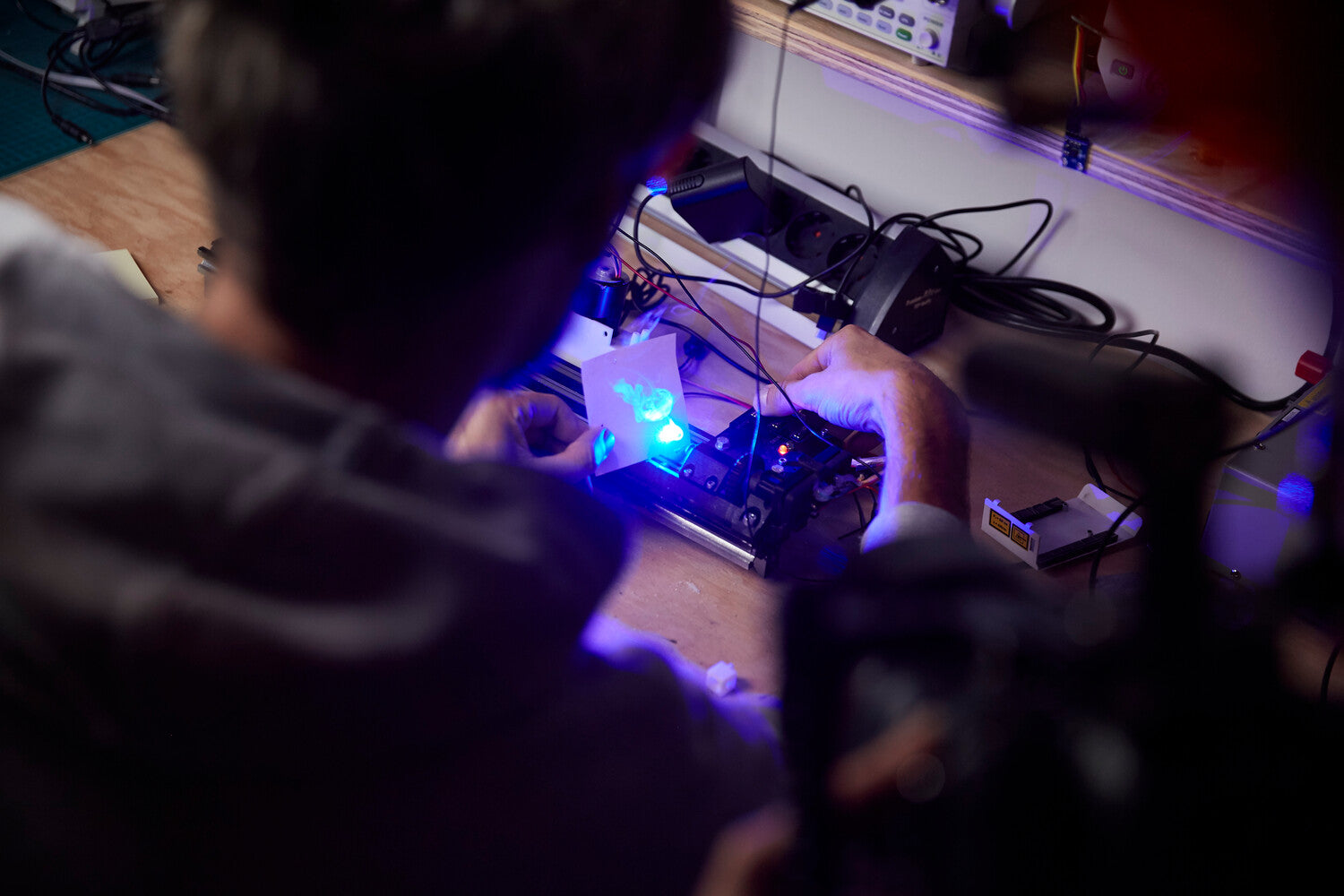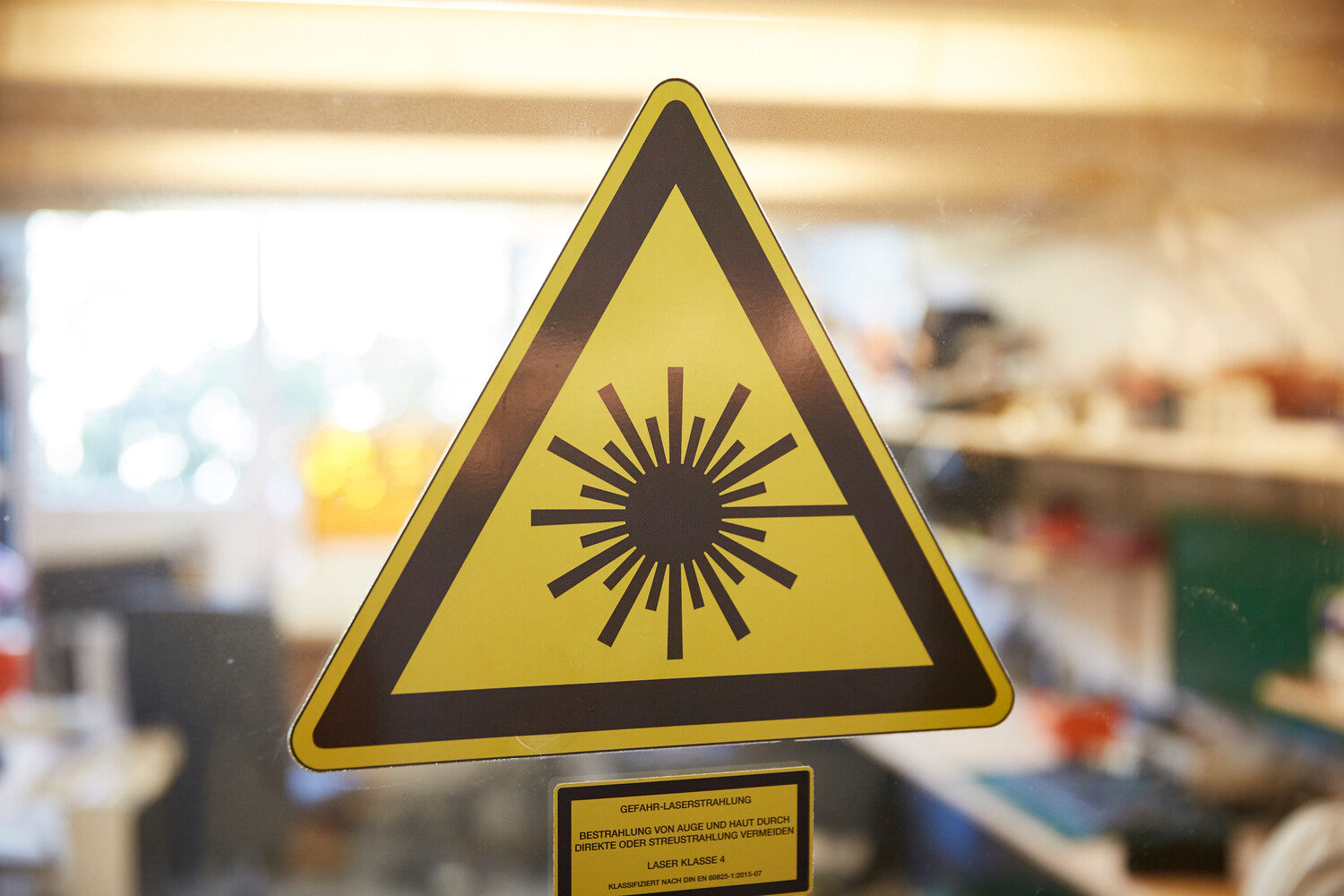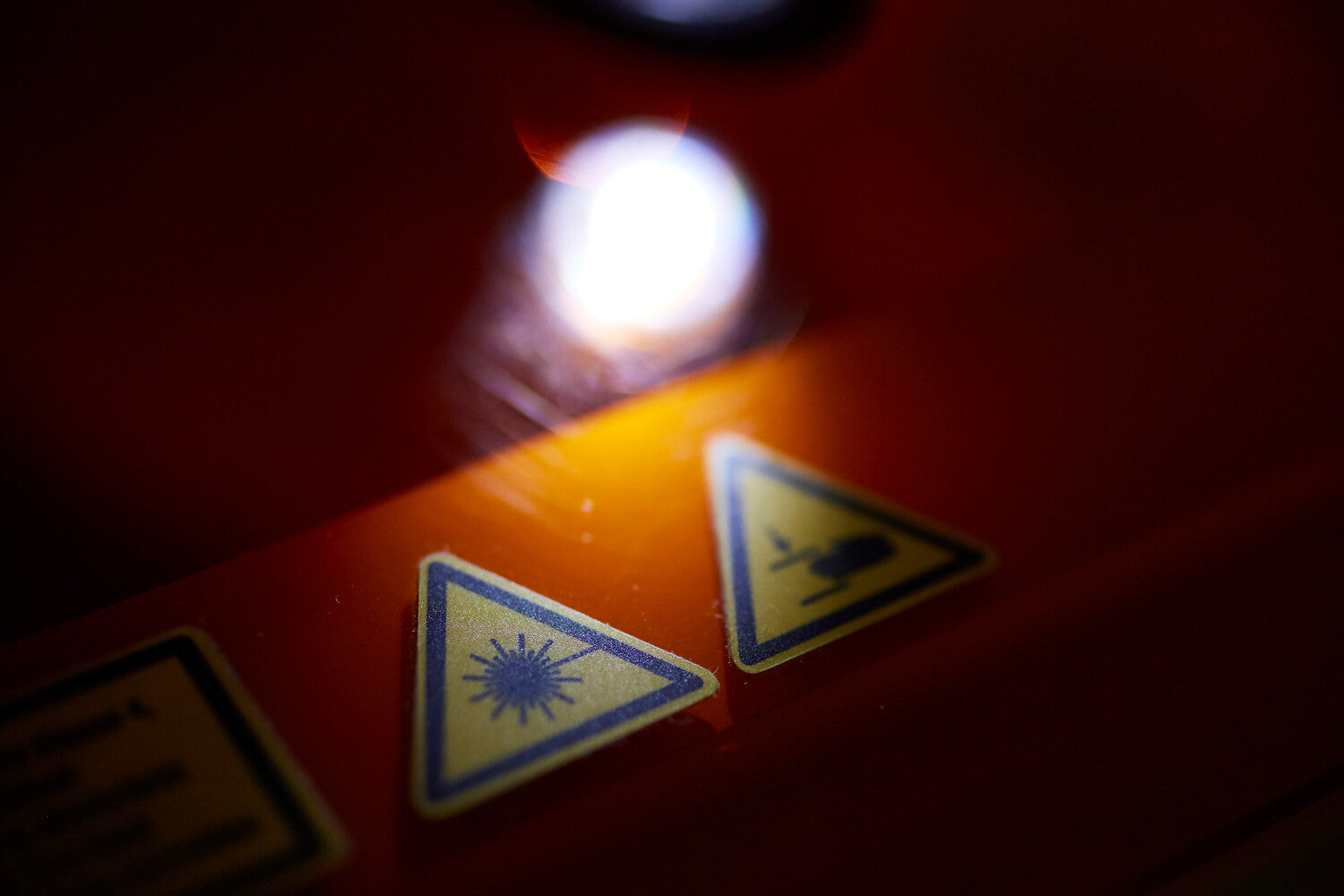Protected with safety: Everything you need to know about laser safety glasses
Lasers, these precision tools of modern technology, are widely used in medicine, industry and entertainment. Their versatility ranges from precise surgical cuts to spectacular light shows. But these fascinating beams of light pose serious risks to the human eye. The spectrum of possible eye damage ranges from temporary glare to irreparable retinal damage. Therefore, the use of laser safety glasses is essential if there are no other safety precautions like with Mr Beam. It offers reliable protection and is a fundamental part of the safe use of laser technology to protect your eyes from these invisible dangers. Even if you don't need glasses when using the Mr Beam, let us tell you how to use laser safety glasses - have fun reading!
The Mechanics of Light: Understanding how lasers work and affect your eyes

Lasers are not only fascinating but also complex devices. They produce light by amplifying electromagnetic radiation, resulting in an intense and focused beam of light. This concentrated energy is what gives lasers their wide range of applications, but at the same time it also poses a danger to the human eye. There are different types of lasers that differ in their wavelength and power. These include gas lasers, solid-state lasers and diode lasers, each of which poses its own risks to the eyes. These range from mild irritation to serious damage to the retina, depending on the intensity and duration of exposure to the laser beam.
Laws and standards in focus: The framework for safe laser use

When dealing with laser technology, precise laws and regulations ensure your safety. In Germany, the Occupational Safety and Health Act and accident prevention regulations regulate the use of lasers to protect users and bystanders from harm. The guidelines of the International Electrotechnical Commission (IEC), which set standards for the safety of laser devices, apply globally. There are certifications specifically for laser safety glasses that guarantee their suitability for certain laser types and powers. These certificates, such as the EN 207 standard, ensure that the glasses meet the highest safety requirements and offer effective protection. This way you can ensure that your eyes are always protected as best as possible when using lasers.
Be careful when choosing your laser safety glasses
Extreme caution should be exercised when purchasing laser safety glasses. Not every product delivers what it promises, and laser safety glasses often have to be taken off the market because they do not meet the required safety standards. These dangerous products can cause serious eye injuries if they cannot withstand the intense laser beams. The Federal Institute for Occupational Safety and Health (BAuA) maintains a database that records information on unsafe products, including laser safety glasses. Consumers should therefore inform themselves about the safety and quality of laser safety glasses before purchasing and only choose products that have been tested and come from trustworthy manufacturers.
Laser safety glasses in use: From medicine to leisure
The need for laser safety glasses spans a wide range of applications, starting in medicine. In laser surgery and dentistry, for example, lasers are used to precisely process tissue. Here, laser safety glasses not only protect medical staff, but also patients from the intense rays that arise during procedures. The specific requirements for the glasses vary depending on the type and strength of the laser used, which ensures optimal protection of the eyes.
Lasers are an indispensable tool in industrial and craft manufacturing. They are used in cutting, welding and engraving to process materials with the highest precision. The resulting intense light rays require the use of laser safety goggles, which protect workers' eyes from burns and irreparable damage. These glasses are designed to absorb or reflect the specific wavelengths of industrial lasers, creating a safe working environment.
Laser safety glasses are also indispensable in research and development. In laboratories and scientific experiments, lasers are used for a variety of applications, from materials research to optical measurement technology. Here, researchers must wear glasses that protect not only from direct exposure, but also from reflected rays , which can be equally dangerous. The glasses often have to be individually tailored to the specific laser parameters and the conditions in the laboratory in order to ensure effective protection.
Finally, laser safety glasses are also important in the area of hobbies and leisure. In activities such as laser engraving or in light shows where lasers are used for aesthetic effects, it is crucial to protect the eyes from radiation damage. Even at lower powers, which are common in home applications, there is a risk of eye damage if appropriate protective measures are not taken. It is therefore important to always wear laser safety glasses, even in these situations, in order to safely enjoy the fascinating world of lasers.
Mr Beam: Safe laser use without safety glasses

Discover the Mr Beam, an example of innovative laser technology that can be used safely without laser safety glasses. The specially designed orange protective cover of the Mr Beam ensures that your eyes are protected from the laser beam at all times. Another notable safety feature is that the laser automatically shuts off as soon as the lid is opened. These precautions guarantee that your eyes are never exposed to laser radiation. As a laser class 1 device, the Mr Beam stands for the highest safety standards, which enable you to use the technology worry-free and protected.
Which laser safety glasses do I need?
Choosing the right laser safety glasses is crucial for your safety. Note the following aspects:
- Specific Laser Type: First, identify the type of laser you are working with. Different lasers require different levels of protection. Glasses suitable for a CO2 laser may not provide protection for a Nd:YAG laser
- Wavelength range and optical density: Choose glasses that cover the specific wavelength range of your laser. The optical density of the glasses indicates how much the laser beam is attenuated to protect your eyes. Higher optical density means stronger protection
- Visibility: Make sure the glasses allow adequate visibility. Some glasses can alter colour perception, which could be problematic in certain work environments
- Fit and comfort: The glasses should fit comfortably without pressing or slipping. A comfortable fit is essential, especially when worn for long periods of time. Check whether the glasses have adjustable elements that allow for individual adjustment
By taking these criteria into account, you will ensure that you choose laser safety glasses that offer optimal protection while taking your working conditions into account.
Ensuring longevity: Care and maintenance of your laser safety glasses
Proper care of your laser safety glasses guarantees their longevity and efficiency. When cleaning it is important to use special cleaning products intended for optical devices. Avoid harsh chemicals that could damage the glasses' coatings. A soft, lint-free cloth is ideal for gently removing dust and fingerprints. When storing, you should ensure that the glasses are stored in a protective cover or case to avoid scratches and other damage.
It is also crucial to regularly check your glasses for scratches, cracks or other signs of wear. Even the smallest damage can impair the protective effect. If such defects occur, it is essential to replace the glasses in order to continue to ensure optimal protection for your eyes. With this careful care and regular inspection, you can ensure that your laser safety glasses are always in top condition.
For your safety: Use lasers responsibly

Finally, we summarize the key points: Choosing the right laser safety glasses depends on the specific type of laser, the wavelength range and the optical density. The importance of fit and comfort, as well as regular care and maintenance, cannot be underestimated. It is crucial to use lasers responsibly and always prioritize eye protection. I encourage you to continually seek additional information and consistently adhere to established safety standards. Because your safety and health always come first when using this powerful and versatile technology.



